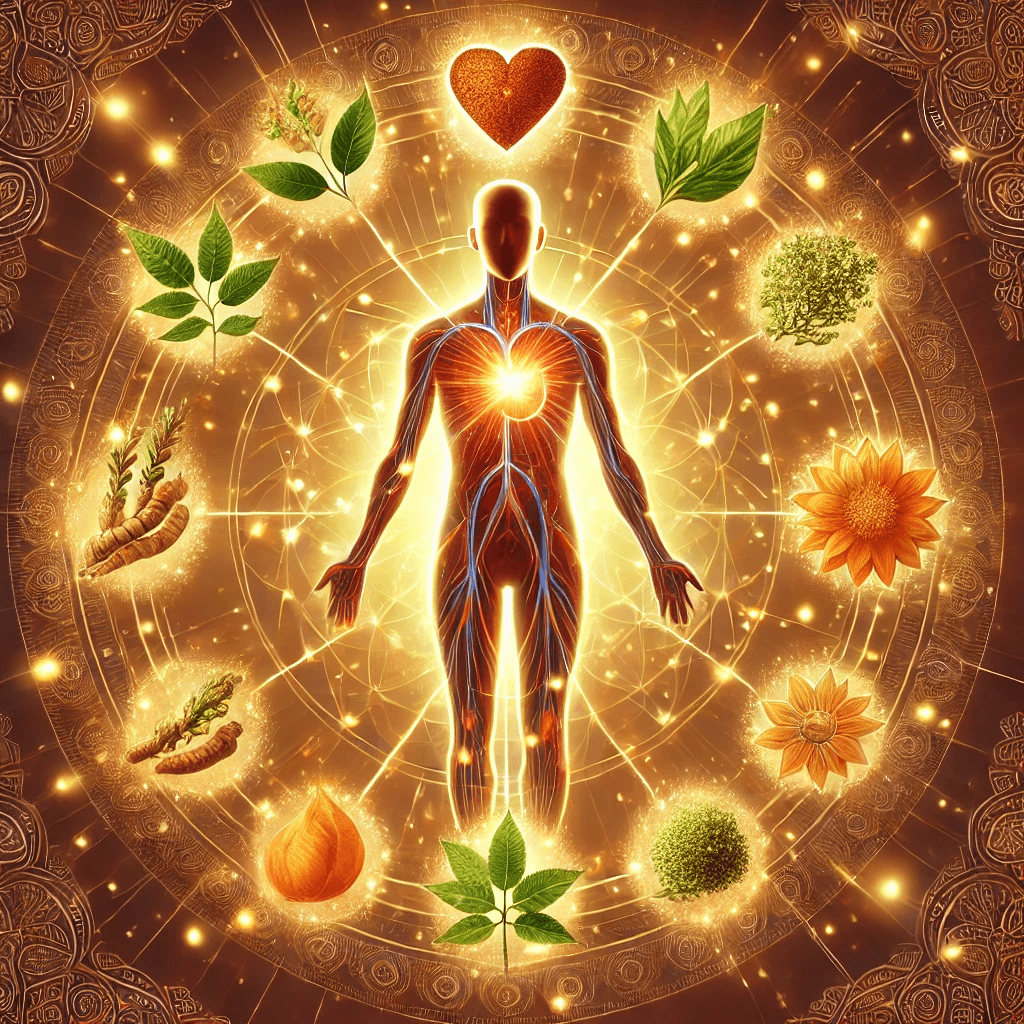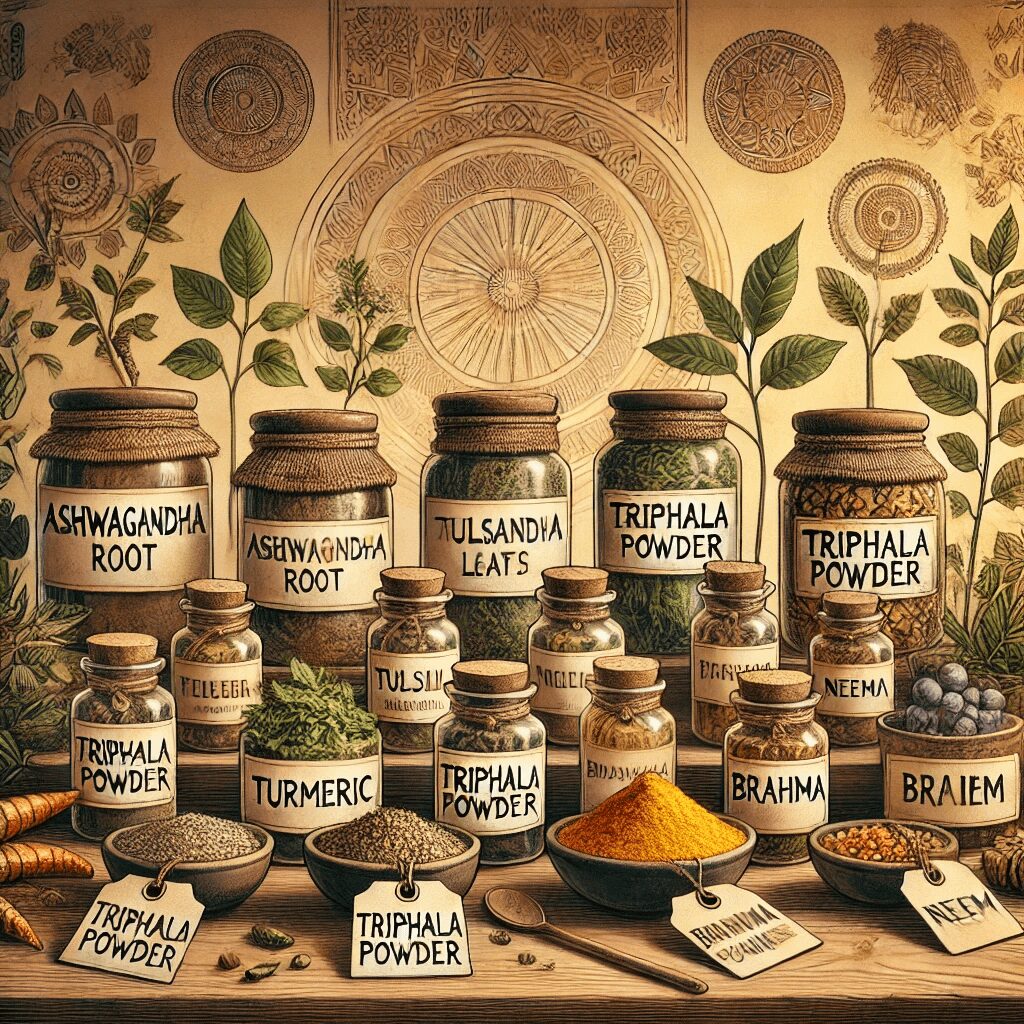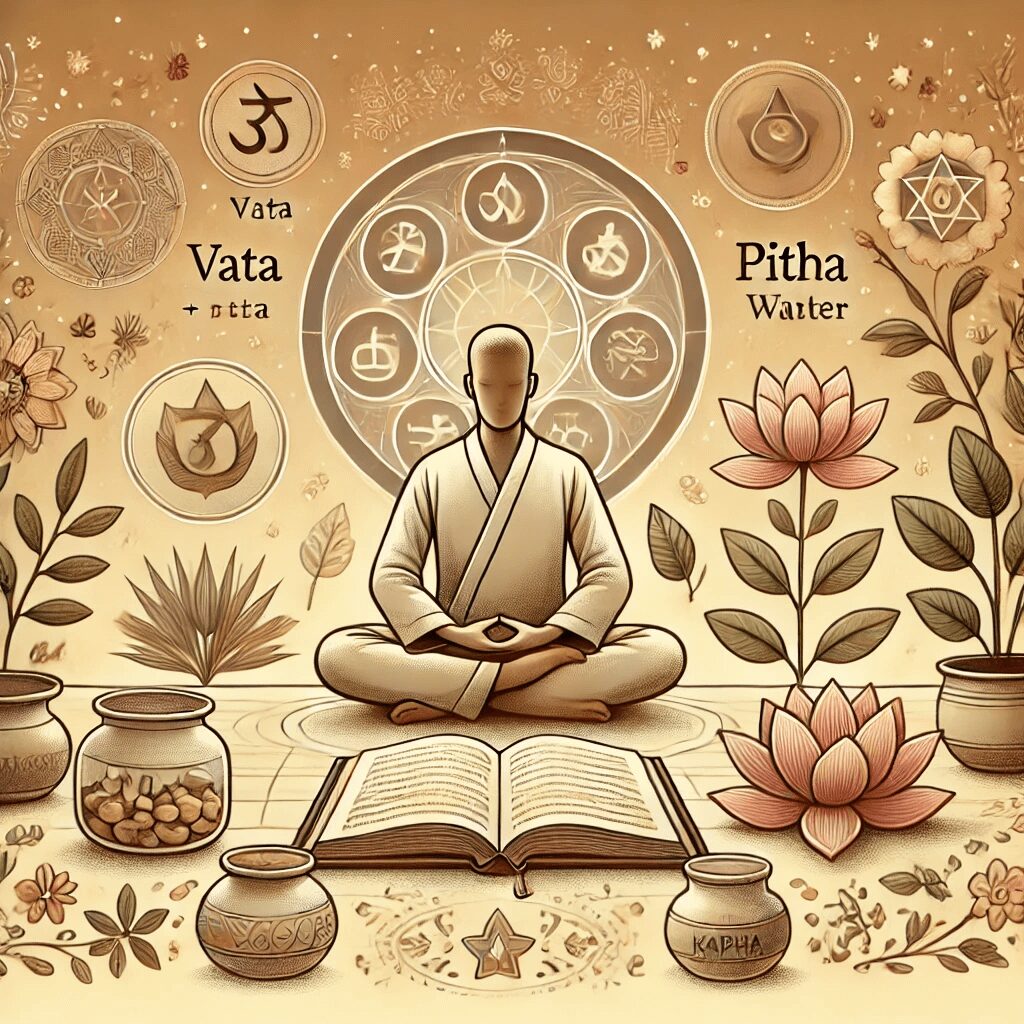Herbal Supplements
Unlocking the Power of Ayurvedic Herbal Supplements for Holistic Health
By Dennis Bluthardt at Namaste Studios
Lately, there’s been a clear pivot in public curiosity towards “natural wellness” and alternative medicine. With the enormous list of potential side effects of most pharmaceuticals, it’s no wonder that people might look for a more holistic approach to their health. And by “holistic,” I don’t mean “pretentiously New Age” or misguidedly anti-science, but rather “wholistic.” This mindset treats wellness as you should and operates on the following: homeostasis + physical/mental stability = the good life.
One product line that comes to mind is Ayurvedic herbal supplements, which are good old-fashioned “medicine” in the form of herbs, spices, and extracts. If you want to talk about all things old-fashioned and OG, consider this a callback to 3,000 B.C. India was where the concept of herbal medicine was ahead of its time. For everyday use, supplementation with Ayurvedic herbs is known to increase energy, balance one’s diet, boost overall immunity, calm one’s nerves, and keep things “regular,” if you know what I mean.
These benefits suggest a mostly internal, physiological effect on the body after supplementation (as many forms of medicine are apt to deliver). Still, others attest to regular Ayurvedic usage’s psychological and even quasi-spiritual benefits. Who knows what might happen with the right stuff and in the right combination? And, whatever your take on these alternative supplements might be (placebo or otherwise), you can’t deny the overall positive feedback that the community has claimed overall “Holistic Wellness” movement. And, as for what Ayurvedic supplementation can do to promote that sort of “holistic” wellness and overall life improvement, I implore you to keep reading…

Benefits of Ayurvedic Herbal Supplements
“Herbal supplements are recognized to enhance the body’s ability to reduce stress (adaptogens like Ashwagandha and Rhodiola), aid in digestion (peppermint, ginger), and boost our immune system (elderberry, echinacea), among countless other things.”
In Ayurveda, the primary treatment of disease takes a different lens. Emphasis is placed on viewing the subject holistically and symptomatically. That is, an emphasis is placed on “doing less” to define the course of therapy, and the treatment is primarily guided by understanding how to restore balance to the individual. To be specific, restoring balance and reducing symptoms are two ends of the same spectrum, but the lens through which the subject is viewed alters the presentation.
Moving forward, alternative therapies of various kinds will be recognized as conforming to conventional medical practices. Internally, a therapy provider aspires to partner with the client (not dominant, not subservient) in the marketplace. Reformulating the delivery modality of herbs and minerals through different dosage forms, for example, may allow the product to be absorbed more effectively into the body or trend better with consumer lifestyles and align with their values.

Popular Ayurvedic Herbal Supplements
“Ashwagandha is revered as a potent adaptogen within Ayurvedic medicine, known for improving vitality while calming the nerves and reducing anxiety. Some research has found that Ashwagandha may support better cognitive performance and immune system function. Common side effects include gastrointestinal upset and drowsiness, especially in higher doses. Always speak with your doctor before starting a new supplement routine.
You may know turmeric best for its curcumin, which gives the spice its color and is primarily responsible for turmeric’s anti-inflammatory and antioxidant effects. Turmeric has also been associated with better joint health and cardiovascular function. However, exceeding the tolerable limit of turmeric can cause stomach or gallbladder problems, and it may interact with some medications.
Triphala, one of the most well-loved formulas in Ayurveda, is a gut-specific nutraceutical that improves digestion and overall gut health. It supports the body’s natural cleansing process while reducing digestive disturbances like gas, bloating, and irregular bowel movements.”

Incorporating Ayurvedic Supplements into Your Diet
Implementing herbs into your daily routine can be easy and enjoyable. A great way to take herbs is through tea. Teas serve the purpose of hydrating the body and reaping the benefits of the herbs used. You should have a calming chamomile tea before bed to relax or a ginger tea after a meal to help with digestion. Tea can be consumed in the morning to start your day or at night to wind down. It’s that simple!
For those who want their herbs in a more potent form, capsules and powders work perfectly. Capsules are great because you can take them with a meal, so you’ll never forget when exactly you must take them. But if you like cooking or making smoothies, you might opt for the powder form instead. Powders offer the most versatile way to consume herbs. Precisely, mix the powder Ashwagandha into your next morning smoothie, and then start your work or school day off with stress relief and energy support.
Ayurvedic herbs will be a familiar friend if you love yoga and/or meditation. Ayurvedic supplements are intended to bridge the gap between the West and naturally occurring healing in the body (i.e., these capsules balance the main components, or doshas of the body. The idea is to help the body get back to its “normal” state, to heal the body in the most effective way possible).
Find the ways you best enjoy taking herbs so that you can align your practices to fit your general likings. No way fits all! Have fun with this; craft your personalized herb lifestyle to return to being your #1 self again, as we say here at Real Wellness.

Understanding Ayurveda
“Ayurveda is rooted in the philosophy of balance among the body, mind, and spirit. It underlines that health is a state of harmony where an individual’s physical, mental, and emotional facets coexist. This all-encompassing approach spurs individuals on to understand who they are (or even who they were) and what they are, essentially, what their constitution (dosha) allows and disallows. Physically and psychologically. Knowing these dimensions allows for customizing lifestyle choices, diet, and wellness practices, maintaining the balance or equilibrium.
The Ayurvedic practice is all about herbs. Practitioners believe these plants possess a unique ability to restore balance and achieve healing that no other treatment can match. Because of this, the education curriculum of Ayurvedic practitioners is concentrated heavily on the’ medicinal and clinical use. Herbs in Ayurvedic medicine are usually given as powders, teas, or oils. And when they don’t do the trick, they can be applied topically, such as using a medicinal salve. The way Ayurveda has used herbs for thousands of years has much to teach us. Can you imagine how knowledgeable practitioners and patients must be after all those millennia of use?
It’s also good to get acquainted with some of the essential Ayurvedic herbs, like:
- Ashwagandha: Known for its adaptogenic properties, which means it can help your body manage stress
- Turmeric: Known for its anti-inflammatory properties
- Triphala: A blend of three fruits that are used to support digestion and detox
Each herb has a list of benefits contributing to the holistic healing that Ayurveda provides its followers. “
Ayurvedic herbal supplements have grown popular because they approach health and wellness holistically. Ayurveda is an ancient form of medicine born in India, and it primarily focuses on creating a balance between the body, mind, and spirit. These supplements are typically formulated using natural ingredients to promote better health, a stronger immune system, and improved vitality.
Many people struggle with health issues that have become chronic because allopathic medicine isn’t equipped to treat the root cause. While this is incredibly frustrating, you still have options.
There are many different types of energy healing, and some have been used to treat ailments for thousands of years! Despite the negative connotations surrounding energy healing and related metaphysical topics, more and more people are trying energy healing and reporting the positive impacts in the process. Energy healing is the solution you’ve been looking for.
Here are three types of energy healing to start you on your path toward better health!
- Crystal Healing
- Reiki Healing
- Qigong
To learn more, visit Ayurveda at Namaste Studios to book an Ayurveda session. Additionally, you can find more of our Ayurveda Blogs here.
For a Limited Time: Get your NEW MOON JOURNAL for a massive discount at Amazon here!
Bonus for blog readers: Watch how this Hybrid AI chatbot can save thousands of hours interacting with your clients. Click here for a FREE WEBINAR – It’s AMAZING!





